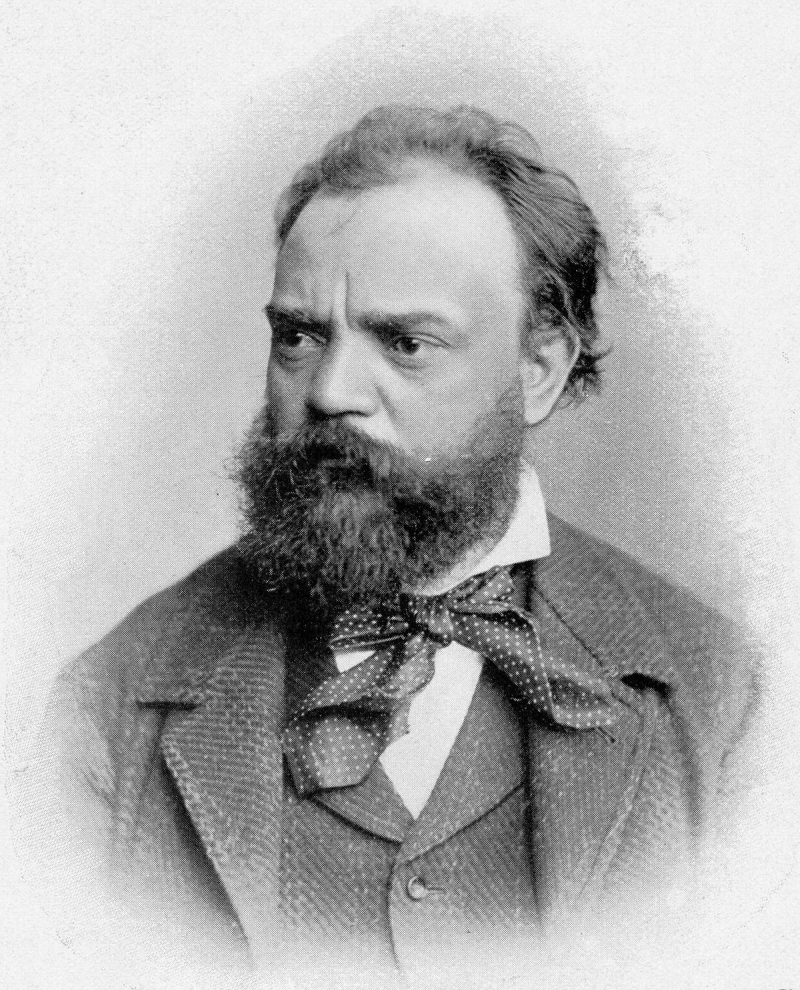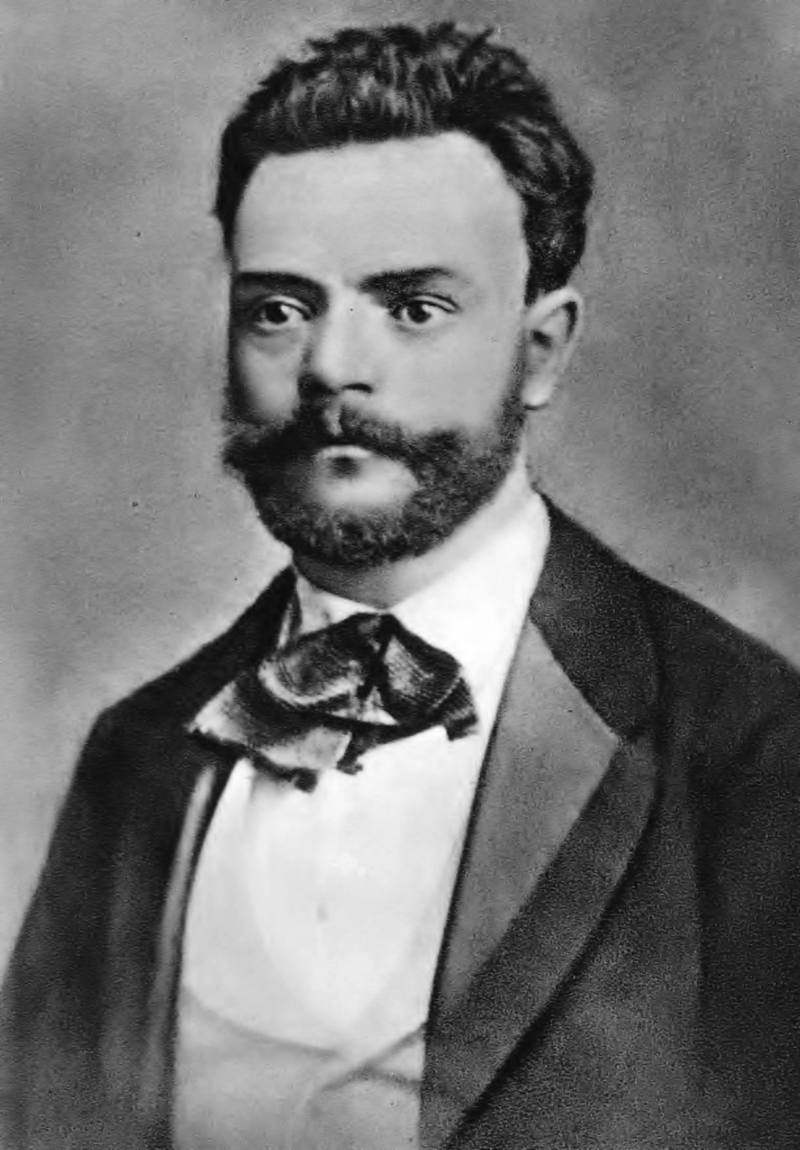Antonín Leopold Dvořák
Antonín Leopold Dvořák (8 September 1841 – 1 May 1904) was a Czech composer who was one of the first Czech composers to earn international acclaim. Following the Romantic-era nationalist precedent of his predecessor Bedřich Smetana, Dvořák frequently used rhythms and other features of Moravian and Bohemian folk music.
Dvořák demonstrated his musical abilities at a young age, beginning as a violin student at the age of six. His works were first performed publicly in Prague in 1872 and, with particular success, in 1873, when he was 31 years old. In 1874, he submitted a composition for the Austrian State Prize for Composition, which included scores for two further symphonies and other works. Although Dvořák was unaware of it, Johannes Brahms was the jury's leading member and was very impressed. Dvořák received the prize in 1874, 1876, and 1877, when Brahms and the eminent critic Eduard Hanslick, who was also a member of the panel, made themselves known to him.
Dvořák's first religious work, a setting of Stabat Mater, premiered in Prague in 1880. It was a huge hit in London in 1883, and it spawned numerous other productions in the United Kingdom and the United States. Dvořák was appointed as a professor at the Prague Conservatory in 1891. He wrote his Dumky Trio, one of his most successful chamber music compositions, between 1890 and 1891. Dvořák immigrated to the United States in 1892, when he became the director of the National Conservatory of Music of America in New York City. Dvořák created his two most successful orchestral works while in the United States: the Symphony From the New World, which established his fame around the world, and his Cello Concerto, one of the most highly acclaimed of all cello concerti. Dvořák relocated from New York City to Spillville in the summer of 1893, and it was here that he produced his most renowned piece of chamber music, the String Quartet in F major, Op. 96, which became known as the American Quartet.
Except for his first opera, all of Dvořák's nine operas have Czech librettos and were designed to represent the Czech national spirit, as were some of his choral works. Rusalka is by far the most successful of the operas. The seventh Humoresque and the song "Songs My Mother Taught Me" are two of his smaller works that have been widely performed and recorded. He has been called "arguably the most versatile composer of his time." The Dvořák Prague International Music Festival is a prominent concert series produced each year to commemorate Dvořák's life and works.













